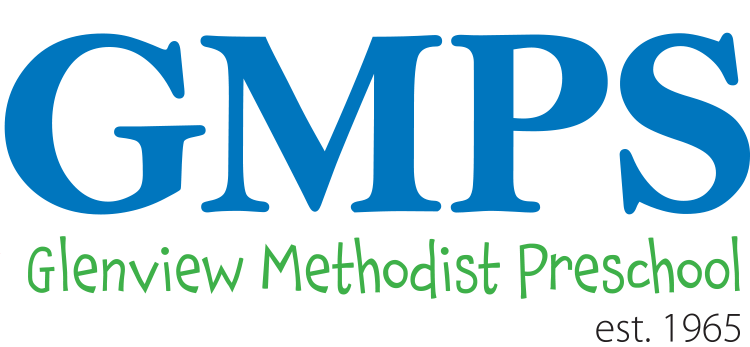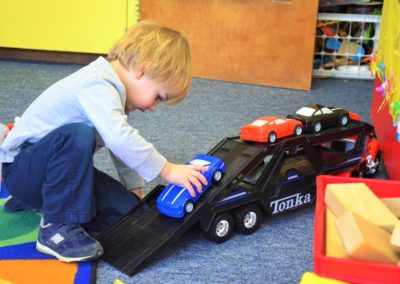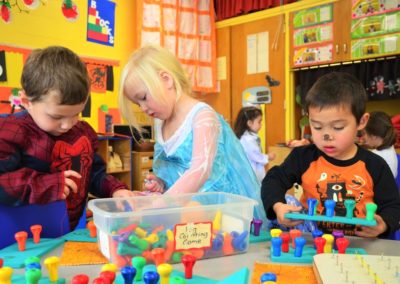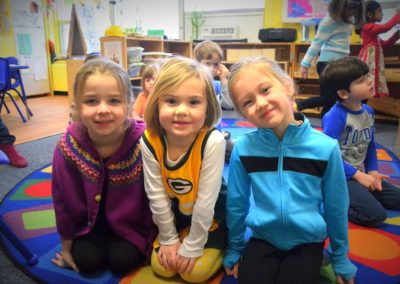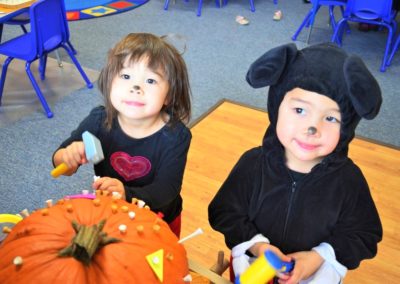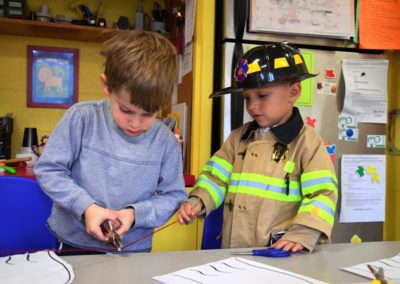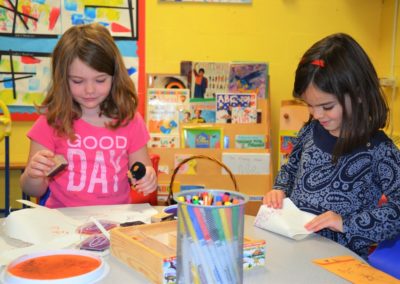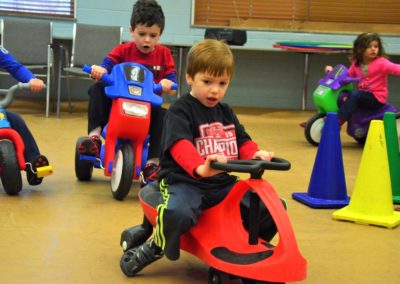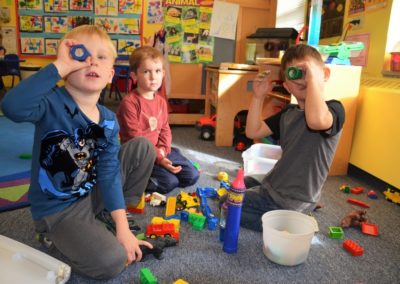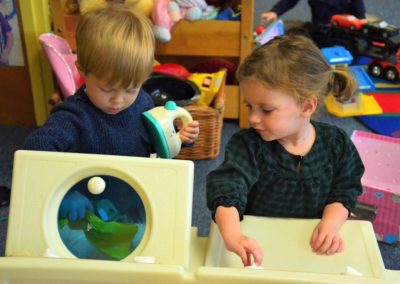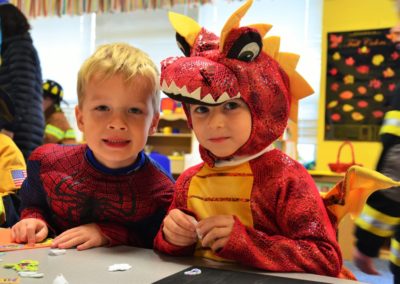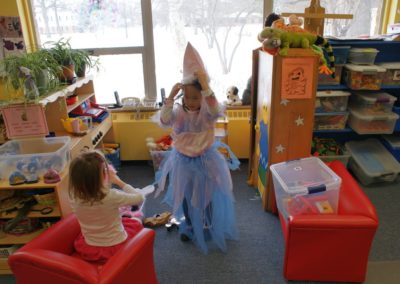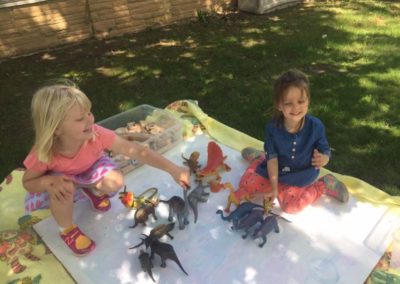Philosophy
Nothing lights up a child’s brain like play.
Dr. Stuart Brown, Founder, National Institute for Play
Philosophy
Early childhood education begins when a child is physically and emotionally ready to explore the world with new people and in new places – separate from the home environment. It is meant to be an extension of the caring and teaching experience the child receives from birth. Preschool emphasizes the principle that children learn through play. Play is promoted as a means to develop divergent thinking and creative expression. Nurturing, warm, flexible interaction between adults and children will lead to positive social and emotional growth and strengthen awareness of self. The children will have the opportunity to explore, create, problem-solve and develop independence. Teachers are facilitators; they stimulate, encourage and guide, but never dominate. Children need to experience trusting, supporting relationships that will enable them to develop a positive self-image, learn to exercise self-control, and thereby achieve autonomy.
Curriculum Goals
We aim to help children adjust to different situations; to express creativity, imagination, and inventiveness; to feel comfortable and secure in adjusting to and coping with their environments; to learn to think and to solve problems; and finally, and most importantly, to gain a positive self-image! To that end, we focus on the social, emotional, physical and cognitive needs of each child.
- Socially, by fostering rewarding relationships with children and adults.
- Emotionally, by providing a gradual transition from home to school, meeting each child and parent with trust; offering opportunities to test relationships with peers and surroundings in order to better establish their images of themselves as worthwhile individuals.
- Physically, by encouraging the use of large and small muscles and exploring the relationships between his/her own body and environmental factors.
- Cognitively, by helping develop problem-solving skills, expanding verbal communication and logical thinking skills, and developing early literacy skills including phonemic awareness.
Our curriculum is modeled after The Creative Curriculum for Early Childhood, by Deane Trister Dodge, Laura J. Colker and Cate Heroman, which demonstrates how to plan a developmentally appropriate program focusing on well-organized interest areas. Teachers implement activities using blocks, a house corner, table toys, music and movement, art, sand and water, literacy centers, cooking, science, math manipulatives and active outdoor play. More detail on program specific curriculum goals for the Getting Started can be found here and Three & Four programs can be found here.
Programs
We have school year programs for children aged 2 through 5 with both morning and limited afternoon options. We also offer summer camps for the weeks after the preschool calendar ends and before the public schools end its school year. See our Programs page for a full description of the class offerings, times and tuition fees.
